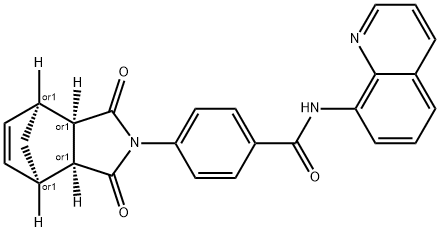Wnt signaling proteins are small secreted proteins that are active in embryonic development, tissue homeostasis, and tumorigenesis. Wnt proteins bind to receptors on the cell surface, initiating a signaling cascade that leads to β-catenin activation of gene transcription. IWR-1-endo is a potent inhibitor of the Wnt response, blocking a cell-based Wnt/β-catenin pathway reporter response with an IC50 value of 180 nM. It inhibits, at 10 μM, Wnt-induced accumulation of β-catenin, leading to proteasomal degradation of this protein through a destruction complex which consists of Apc, Axin2, Ck1, and GSK3β. IWR-1-endo stabilizes the destruction complex, increasing the level of Axin2 protein without changing the levels of Apc or GSK3β. The IWR compound does not change the de novo synthesis of Axin2, alter the affinity of Axin2 for β-catenin, or inhibit the proteasome. It has a half-life of 60 minutes in murine whole blood and 20 minutes in intact murine hepatocytes. In in vivo tests, IWR-1-endo inhibits zebrafish tail fin regeneration with a minimum inhibitory concentration of 0.5 μM. The IWR-1-exo diastereomer exhibits much less activity against the Wnt/β-catenin pathway and has been used as a control.

